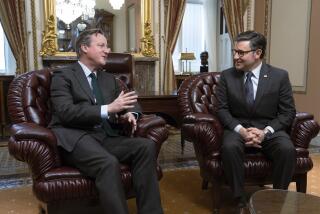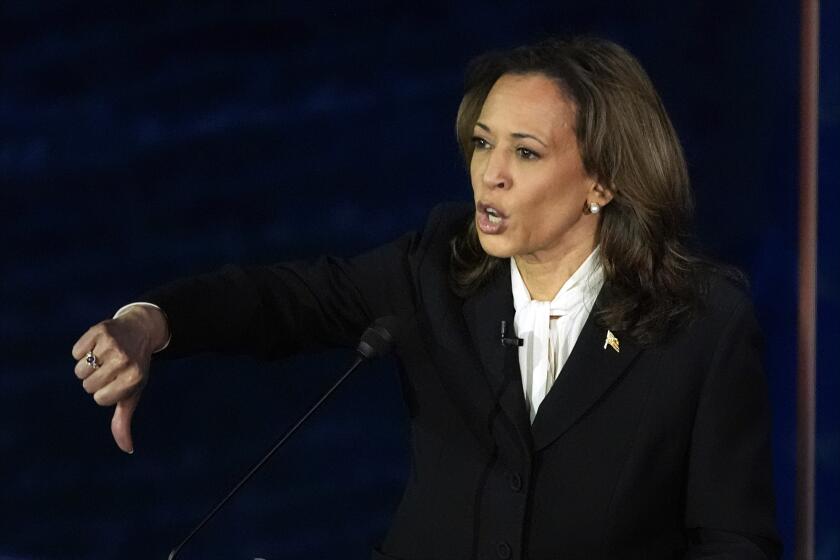Britain, Italy condemned for Libya ties
They opted for engagement instead of estrangement, lured in part by the prospect of Libyan oil. Decisions by Britain and Italy to do business with the regime of Moammar Kadafi have led to billions of dollars in contracts for companies from both countries.
But their friendliness with the longtime dictator is generating angry denunciations of London and Rome as the deaths and injuries mount in Kadafi’s crackdown on anti-government protesters.
In Britain, critics Monday blasted the 2007 “deal in the desert” between Kadafi and then-Prime Minister Tony Blair to try to normalize relations between their nations. The effort came in spite of such major sore points as the deadly 1988 terrorist bombing of a Pan Am airliner over Lockerbie, Scotland, which killed 270 people and was blamed on Libya.
The growing rapprochement between London and Tripoli facilitated an oil exploration deal by BP worth more than $800 million. The British government has provided a few million dollars in development aid, and British arms dealers have reportedly sold millions of dollars’ worth of equipment to Libya, including tear gas and bullets — a lucrative trade that has taken on sinister implications in light of Kadafi’s response to the demonstrations.
The British government has now revoked export licenses to Libya for riot-control gear, the Guardian newspaper reported. And Prime Minister David Cameron, in Cairo for the first visit by a Western leader to post-revolution Egypt, strongly condemned Kadafi’s crackdown.
“The brutal oppression by the regime is completely appalling and unacceptable,” Cameron said Monday.
London has summoned the Libyan ambassador to demand an explanation of Kadafi’s actions. British Foreign Secretary William Hague also urged restraint in a telephone call Sunday to one of Kadafi’s sons, Saif, who went on Libyan television that night to deliver a stern warning to demonstrators.
The growing ties between Britain and Libya over the last few years have been a regular source of controversy.
The London School of Economics accepted a controversial $2.4-million donation in 2009 from a charitable foundation headed by Saif Kadafi, who holds a doctorate from the university. Last year, a scuffle between pro- and anti-Tripoli protesters broke out at the university when the younger Kadafi came to give a speech.
“The British government … has a lot to apologize to the Libyan people for, for their courtship of a dictator who has so much blood on his hands,” said Hisham Ben Ghalbon, a British resident and member of the Libyan Constitutional Union, an opposition group.
Italy, a former colonial power in Libya, has cultivated ties with Kadafi for years. Italian companies hold major contracts in Libya, including the oil and gas giant Eni, which has pledged to invest as much as $25 billion there.
Conversely, Libya’s central bank holds a reported 4% share in Italy’s largest bank, UniCredit, which last year was granted the first foreign license to operate in Libya.
Rome has also won pledges from Kadafi to stem the flow of North African refugees who use Libya as a launching point to reach Europe, most winding up in Italy.
Critics have called for a forceful response from Italian Prime Minister Silvio Berlusconi, who has said he doesn’t wish to “disturb” Kadafi.
On Monday, Berlusconi said he was alarmed by the escalation of violence in Libya and called the use of force there “unacceptable.”
“The European Union and the international community must make every effort to prevent the Libyan crisis from degenerating into a civil war that will have consequences difficult to predict,” he said in an e-mailed statement distributed by his office.
More to Read
Sign up for Essential California
The most important California stories and recommendations in your inbox every morning.
You may occasionally receive promotional content from the Los Angeles Times.











